Buying a House in Australia as an Expat

One of the most common questions for those considering a move to Australia is, “Can I purchase a house as a British expat?”
The good news is that it is possible.
Foreigners, including temporary residents and individuals on short-term visas, can buy property in Australia, though specific conditions will apply.
Whether you’re an international investor, relocating and seeking long-term residency or even a parent seeking accommodation for your child studying in Australia, there are opportunities to invest in this thriving market.
But, ultimately, buying a house in Australia as an expat offers more than just a place to live – it opens the door to a very diverse culture in some of the world’s most desirable locations.
Australia offers something for everyone, from the bustling streets of Sydney to the laid-back coastal lifestyle of Brisbane or the cultural melting pot of Melbourne.
The real estate market here is varied, with options ranging from high-end luxury homes to more affordable suburban properties.
Buying a house in Australia is relatively transparent, from securing finance to navigating legal obligations, if you are armed with the right knowledge the process should be pretty straightforward!
The benefit of owning property here is an investment in one of the world’s most stable markets and an opportunity to experience a lifestyle that combines modern conveniences with unparalleled natural beauty.
Let’s explore everything you need to know about the process of purchasing a home in Australia.
NOTE: Please note that the information provided in our article is aimed at individuals looking to buy residential homes rather than property developers or large corporate buyers.
Before you Arrive in Australia
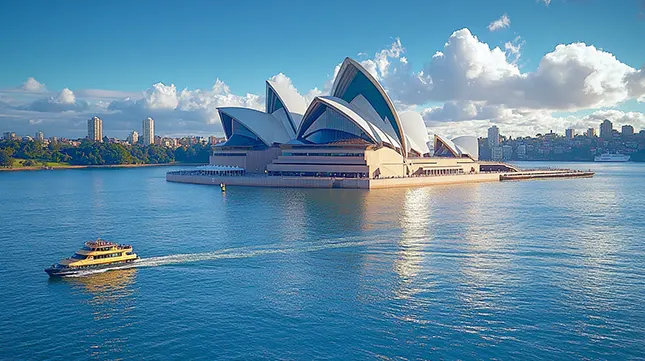
Make sure you are fully prepared for the purchasing process.
Relocating from the UK to Australia is a significant life decision, offering the opportunity to experience a new culture, lifestyle, and environment – the warmer weather is especially appealing to many!
However, it requires a great deal of careful planning (sometimes years) before you even start your search for a new home down under.
Aside from your own purpose of buying a house in Australia, we have put together some key points you should consider that will hopefully help with your planning.
Research Visa Requirements
Understand your visa options, application processes, and criteria for relocating to Australia.
Assess the Cost of Living
Compare living costs in different cities, including housing, utilities, and healthcare, to match your budget.
Understand Healthcare
Explore both Medicare and private health insurance options for coverage as a new resident.
Prepare for Cultural Differences
To ease your transition, be aware of lifestyle changes, local customs, and workplace expectations – you may find there are a lot of differences.
Plan Financially
Look into currency transfers, international banking, and setting up an Australian bank account early on in the moving process to give you a good idea of how much money you will need.
Explore Job Market
Research employment opportunities and the demand for your skills in Australia’s competitive job market.
Arranging Your Move
Decide on moving logistics, shipping essentials, or renting furnished homes so you can effectively manage costs.
Make Friends
Stay open to new experiences and connect with local and expat communities to settle in smoothly.
If you want to find out what it is like to live in Australia, we have written several informative articles you might want to read including Moving to Australia from the UK—50 Reasons to Go and Cost of Living in Australia vs. UK.
As long as you have undertaken your due diligence in every aspect of emigrating, there is no reason why it can’t be a resounding success and one you never regret!
Necessary Legal Requirements for Foreign Buyers
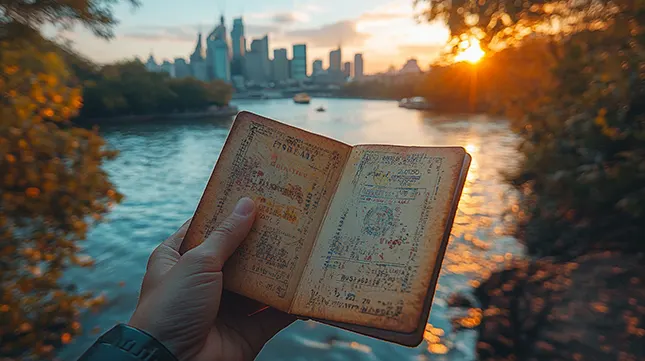
Make sure you meet all of the legal requirements.
Let’s take some time to discuss the legal aspect of purchasing a property in Australia.
The Australian government welcomes foreign investment.
However, it has set strict regulations to ensure the housing market remains accessible to its permanent residents.
The Foreign Investment Review Board (FIRB) regulates foreign investment in Australian real estate.
FIRB approval ensures that foreign investments benefit the country and do not negatively impact housing affordability or availability for local residents.
Generally, non-residents and temporary visa holders must apply for FIRB approval before purchasing a property.
Foreign buyers are typically limited to purchasing new properties, which helps stimulate housing construction across the country.
On the other hand, established properties can only be bought under strict conditions, such as if the buyer intends to live in the home.
But what does all of this mean for you?
Adhering to FIRB regulations is essential, as failing to do so can result in hefty penalties.
Additionally, before diving into the property market, ensure you fully understand the costs involved.
These include the FIRB application fee, stamp duty (which varies by state), and legal conveyancing fees.
You’ll also need to meet specific financial requirements, which differ depending on your visa type.
For more information on FIRB guidelines, visit their official website.
Apply for FIRB Approval
While the process may sound intimidating, FIRB assessments are generally straightforward, particularly if you’re purchasing a new development or intend to build a new property.
To avoid potential delays, you should begin exploring whether you qualify for approval early in your property search – it’s best to know as soon as possible and plan accordingly.
Applications for FIRB approval should be submitted once you have selected a property and before signing any contracts.
Processing times can vary, so factoring this into your timeline is wise.
By understanding the FIRB process and planning, foreign buyers can confidently navigate the Australian property market with minimal surprises.
How to Start the Approval Process
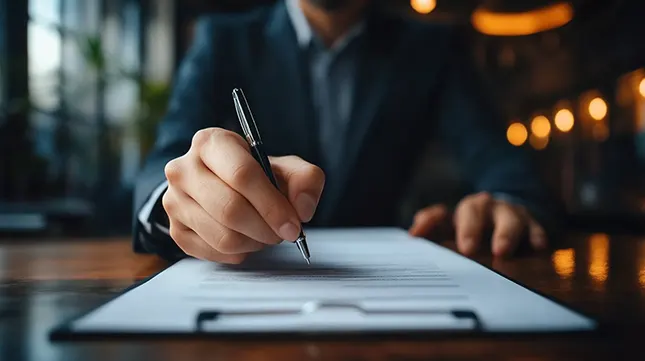
You can submit your application directly or through a solicitor.
There are two primary ways to secure Foreign Investment Review Board (FIRB) approval when purchasing property in Australia: you can either submit the application directly or work with a conveyancer or solicitor.
While both methods are viable, using a legal expert is often the preferred route, as they can help you navigate the complexities and ensure all necessary documentation is in order.
Applicants can download the relevant forms and create an online account via the Australian Government FIRB portal to get started.
Once your application is submitted, the typical processing time is around 30 days.
During this period, the board will review your application to determine whether it aligns with national interest policies.
Application fees vary based on the property’s value, so reviewing these costs early in your decision-making process is essential.
For more information on FIRB fees, you can check the fee structure here.
Submitting Your FIRB Application

It is essential to understand and apply for FIRB approval when buying a house in Australia.
Once you’ve found the right property, it’s time to submit your application.
Every application is reviewed case-by-case to ensure the purchase aligns with Australia’s economic and social interests.
This means that you will need to provide some specific personal information, including:
- Full legal name
- Property address
- Passport details
- Visa information
If you’re purchasing land with the intention of building, additional documentation, such as development plans or building approvals, will be required.
Head over to the Australian Foreign Investment submission page for a more detailed explanation of what to include in your application.
Submitting a clear and accurate application will help expedite the process and avoid unnecessary delays.
How British Expats Can Get a Mortgage in Australia
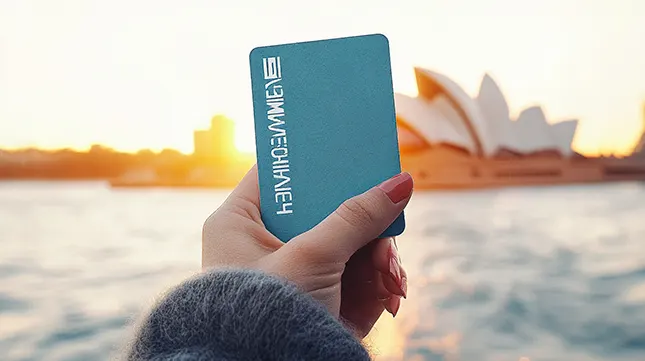
There are several things to consider when applying for a mortgage in Austalia.
You may need some financial assistance to buy your Australian property.
Getting a mortgage is possible for a foreigner looking to buy a home in Australia, but it will come with specific conditions.
Most Australian banks and lenders will offer mortgages to non-residents, though you may need to meet stricter criteria than local buyers.
The key requirement is usually FIRB (Foreign Investment Review Board) approval, which you’ll need before applying for a mortgage, as explained earlier in this article.
Lenders typically require a higher deposit from foreign buyers, often 20% to 30% of the property’s value.
They’ll also examine your financial history, including your income, employment, and credit history.
Some banks may require proof of your visa status, especially if you live on a temporary or working visa in Australia.
We would recommend consulting a mortgage broker specialising in assisting foreigners.
They can help you navigate the loan products available and secure the best deal. Many brokers work with international buyers and understand the extra steps involved.
Check with Australian banks like ANZ for more details on foreign buyer mortgages.
Alternatively, some non-bank lenders or specialist mortgage brokers may be more willing to work with foreigners and offer more flexible terms.
By being prepared and seeking expert advice, you can secure a mortgage and purchase your dream home in Australia.
Understanding Taxes for Foreign Property Buyers in Australia
Foreign property buyers are still subject to Australian tax.
The most significant of these taxes is stamp duty, a state government tax applied when you purchase property.
The rate of stamp duty varies between states and will ultimately depend on the property’s value.
However, as a foreign buyer, you may also face an additional Foreign Buyer Surcharge on top of standard stamp duty.
This surcharge can be as high as 8% in some states, such as Victoria and New South Wales – so be sure to keep this in mind!
Another tax to consider is the Capital Gains Tax (CGT).
If you decide to sell your property in the future, you may also need to pay CGT on any profit you make.
The amount you’ll owe depends on how long you’ve owned the property and your residency status.
Additionally, foreign buyers may be required to pay land tax on properties they own, particularly if they buy an investment property rather than a home to live in.
Land tax rates and thresholds vary by state.
To ensure you understand your full tax obligations, it’s a good idea to consult a tax advisor.
You can learn more about stamp duty and foreign buyer surcharges on the Australian Taxation Office website.
How to Find Your Australian Home
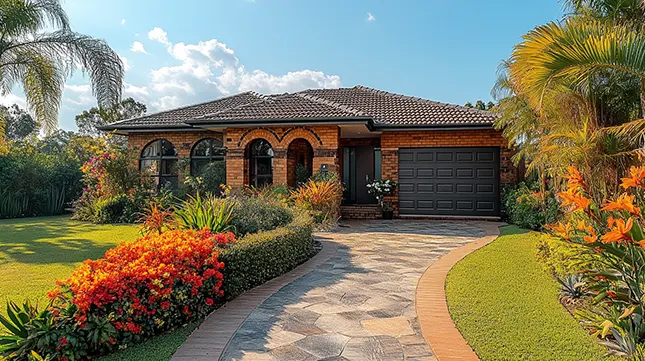
You will need to conduct some thorough research when searching for your dream home down under.
Possibly the most exciting part of your Aussie property journey is finding your home!
If you already have a location in mind, great!
But if you’re still deciding, doing thorough research is essential.
Identify a few key areas that suit your needs, and compare property prices, amenities, and commuting times.
A good starting point is to check recent sales in those neighbourhoods to gather a good understanding of the local market.
Since foreigners are generally limited to purchasing new properties, it’s worth visiting your local real estate agents to inquire about upcoming developments.
They can provide guidance on properties that fit your budget and lifestyle and assist with negotiations.
In Australia, offering below the asking price is common, with discounts of up to 10% not being unusual.
New homes often offer spacious layouts and modern features like integrated appliances.
While not all properties have private pools, many developments include communal swimming areas and outdoor entertaining spaces, like BBQ zones – the perfect way to embrace the Aussie culture.
Renting is also popular for newcomers who want to experience life in Australia before making a long-term commitment.
The Essential Role of a Property Lawyer in Foreign Purchases

Hiring a property lawyer is a key step to ensure your purchase goes ahead as planned.
Navigating the Australian property market as an expat can be challenging, with legal regulations varying across states and territories, so you cannot be too careful.
This is why securing the services of a reputable property lawyer from the start is not only recommended but an absolute must.
A skilled legal professional will help you avoid costly mistakes by ensuring your purchase complies with Australian laws, from Foreign Investment Review Board (FIRB) approvals to understanding state-specific stamp duties and zoning regulations.
In addition to guiding you through the often confusing legal maze, property lawyers are crucial for reviewing contracts, conducting title searches, and resolving any disputes that may arise during the buying process.
Their expertise ensures that all legal obligations are met, safeguarding your financial investment and giving you much-needed confidence throughout the buying process.
With large sums of money at stake, having a legal expert on your side brings an invaluable layer of protection.
It’s also wise to consult financial advisors specialising in international real estate to enhance your decision-making further.
Whether you are buying in Sydney, Brisbane, or a more rural area, choosing an experienced property lawyer who understands the intricacies of the local market will streamline the process and offer peace of mind at every step.
The Value of Hiring a Knowledgeable Real Estate Agent

Hiring a local real estate agent could make the process a lot easier for you.
Another crucial element to buying a house in Australia as a foreigner is hiring a real estate agent.
A skilled agent brings invaluable insight into specific neighbourhoods, including property trends, pricing, community atmosphere, and proximity to key amenities such as schools, shops, and public transportation depending on what you need.
With their expertise, real estate agents can identify properties that align with your preferences and budget, saving you time and energy in your search.
More importantly, they can provide a realistic view of the local market, helping you avoid overpaying or choosing an unsuitable property.
Their local contacts with legal professionals, financial advisors, and other real estate-related services will also make the entire process smoother.
They can guide you through the nuances of the Australian buying process, from understanding contract terms to navigating regulatory requirements.
By minimising risks and ensuring each step is handled professionally, they offer peace of mind while maximising the potential for a successful purchase.
Property Hotspots for Foreign Buyers
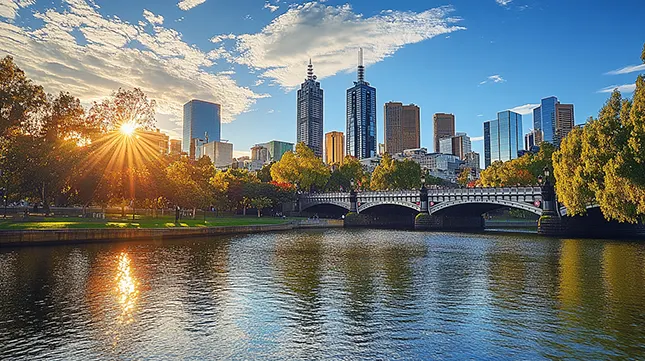
Australia is home to some wonderful locations each appealing to buyers with different needs.
Australia’s diverse real estate market offers something for everyone, whether you intend to search for a home that enables a city lifestyle, a tranquil coastal retreat or something in between.
Sydney, Melbourne, Brisbane, and the Gold Coast are among some of the most popular areas for foreign buyers.
Sydney, known for its iconic landmarks like the Opera House and Harbour Bridge, is a bustling metropolis with strong property demand.
While prices are high, the investment potential remains solid due to consistent market growth.
For a more detailed look at life in the city check out our comprehensive living in Sydney guide.
Melbourne, often celebrated for its arts scene and café culture, offers a slightly more affordable alternative to Sydney.
Its suburbs are renowned for their charming architecture and excellent transport links, making it a popular choice for all types of immigrants.
Read more about this wonderful location in our expats guide to life in Melbourne.
With its warmer climate and more relaxed lifestyle, Brisbane has gained popularity among expats seeking a slower pace without sacrificing urban convenience.
Discover even more about living in Brisbane in our dedicated article to the city.
The Gold Coast, famous for its beaches and year-round sunshine, is another hotspot, particularly for those looking to invest in vacation homes.
Each location offers unique advantages, so it’s essential to research what suits your own unique requirements best.
An Easy 9-Point Summary to Buying a Home in Australia
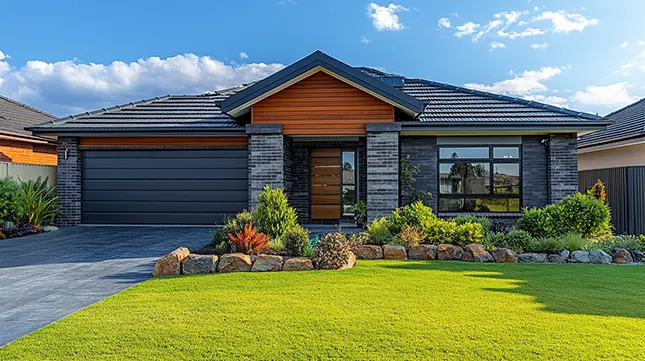
Follow these 9 points to ensure a smooth move.
Buying a home in Australia can be an exciting process, but it’s essential to understand each step to ensure everything goes smoothly.
Here’s a simple 9-point guide that summarises the procedure to help you get started:
- Understand Your Budget Start by assessing your financial situation. Consider how much you can afford to spend, factoring in the deposit (usually around 10-20%) and additional costs such as stamp duty, legal fees, and mortgage setup fees. An online mortgage calculator can help you understand your borrowing capacity.
- Get Pre-Approval for a Loan. Before you begin house hunting, it’s a good idea to get pre-approval for a home loan. This gives you a clear picture of how much a lender will offer, allowing you to focus on properties within your budget. Banks like Commonwealth Bank and ANZ offer pre-approval options.
- Research Locations. Decide where you want to live based on lifestyle, work commute, and amenities such as schools, shops, and parks. Research property prices in your chosen area and consider speaking to local estate agents to better understand the market.
- Find the Right Property. Once you’ve narrowed down your preferred location, start attending open homes and auctions. Keep an eye on online listings and visit real estate websites like realestate.com.au for the latest listings.
- Make an Offer or Bid at Auction. If you find a property you love, it’s time to make an offer. For private sales, you can negotiate with the seller through an agent. If you’re buying at auction, be prepared to bid competitively and stick to your budget.
- Hire a Conveyancer or Solicitor. Engage a qualified conveyancer or solicitor to handle the legal aspects of the purchase. They will review the contract of sale, conduct property searches, and ensure everything is legally in order before settlement.
- Secure FIRB Approval (For Foreign Buyers). If you’re a foreigner, you’ll need approval from the Foreign Investment Review Board (FIRB) before making a purchase. Submit your application via the FIRB website and allow approximately 30 days for approval.
- Exchange Contracts and Pay the Deposit. Once your offer is accepted and the legal checks are complete, you’ll exchange contracts and pay a deposit (usually 10%). This locks in the deal, making the sale official.
- Settlement. Settlement typically takes 30-90 days, depending on the terms of the sale. During this time, your lender will finalise the loan, and your solicitor will ensure the title is transferred to your name. Once settlement is complete, you can collect the keys and move in!
Why You Should Choose White & Company for Your Move to Australia

Although buying a house in Australia as a foreigner may initially seem overwhelming, it doesn’t have to stand in the way of your dream.
With the right planning, guidance, and expert help, you can navigate the process and secure your own Australian property sooner than you might think.
When it comes to relocating abroad, choosing the right international removal company is another important piece of the puzzle.
At White & Company, we specialise in making your move to Australia smooth and stress-free.
Over the years, we have helped hundreds of people with our Australian removal expertise.
From full-load consignments that transport your belongings directly to part-load options that arrive soon after you do.
Need storage? We offer flexible storage solutions to suit your needs.
Our trusted partners in Australia will ensure that all customs paperwork is completed efficiently and accurately, taking the hassle out of your move.
They’ll also manage the customs clearance, unloading and unpacking of your household goods, giving you more time to settle into your new home.
For more details of our services or to discuss your move, contact our international office at 01489 854175 or fill out our quick quote form.
Let White & Company handle the logistics so you can focus on starting your new life in Australia with peace of mind.
For your added peace of mind, we are members of the British Association of Removers (BAR), further cementing our credentials and attention to service.
Note: While this information is accurate at the time of writing, the property market can change. Always stay informed of the latest regulations to comply with Australian property laws.

Max is a seasoned writer and blogger in the real estate and home moving sectors, as well as a knowledgeable source of information for expatriates living and working abroad. His detailed insights have helped thousands of people move and live abroad with greater simplicity and ease.
Posted in: News
Leave a Comment (0) ↓


